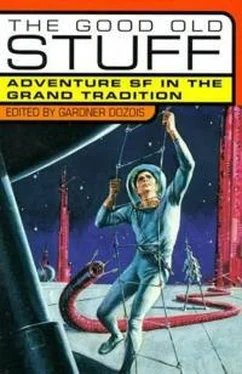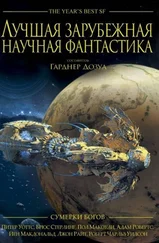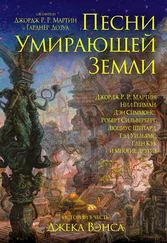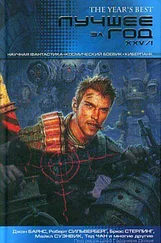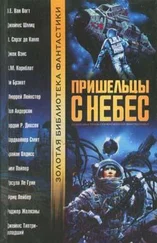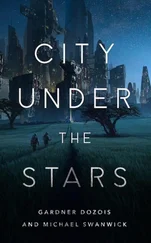Гарднер Дозуа - The Good Old Stuff
Здесь есть возможность читать онлайн «Гарднер Дозуа - The Good Old Stuff» весь текст электронной книги совершенно бесплатно (целиком полную версию без сокращений). В некоторых случаях можно слушать аудио, скачать через торрент в формате fb2 и присутствует краткое содержание. Год выпуска: 1998, ISBN: 1998, Издательство: St. Martin's Griffin, Жанр: Фантастика и фэнтези, на английском языке. Описание произведения, (предисловие) а так же отзывы посетителей доступны на портале библиотеки ЛибКат.
- Название:The Good Old Stuff
- Автор:
- Издательство:St. Martin's Griffin
- Жанр:
- Год:1998
- ISBN:0-312-19275-4
- Рейтинг книги:3 / 5. Голосов: 1
-
Избранное:Добавить в избранное
- Отзывы:
-
Ваша оценка:
- 60
- 1
- 2
- 3
- 4
- 5
The Good Old Stuff: краткое содержание, описание и аннотация
Предлагаем к чтению аннотацию, описание, краткое содержание или предисловие (зависит от того, что написал сам автор книги «The Good Old Stuff»). Если вы не нашли необходимую информацию о книге — напишите в комментариях, мы постараемся отыскать её.
The Good Old Stuff — читать онлайн бесплатно полную книгу (весь текст) целиком
Ниже представлен текст книги, разбитый по страницам. Система сохранения места последней прочитанной страницы, позволяет с удобством читать онлайн бесплатно книгу «The Good Old Stuff», без необходимости каждый раз заново искать на чём Вы остановились. Поставьте закладку, и сможете в любой момент перейти на страницу, на которой закончили чтение.
Интервал:
Закладка:
He couldn’t be sure.
That was the trouble. Everywhere on the tableland around him was a barrenness, a desolation unlike anything he had ever known. The man could be dead, his smashed body lying at the remote bottom of the mountain. He could be inside the ship badly injured; he had, unfortunately, had time to get back to the safety of his craft. Or he could be waiting inside, alert, aggressive, and conscious of his enemy’s uncertainty, determined to take full advantage of that uncertainty.
The Rull set up a watching device that would apprise him when the door opened. Then he returned to the tunnel that led into his ship, laboriously crawled through it, and settled himself to wait out the emergency. The hunger in him was an expanding force, hourly taking on a greater urgency.
It was time to stop moving around. He would need all his energy for the crisis.
The days passed.
Jamieson stirred in an effluvium of pain. At first it seemed all-enveloping, a mist of anguish that bathed him in sweat from head to toe. Gradually, then, it localized in the region of his lower left leg. The pulse of the pain made a rhythm in his nerves. The minutes lengthened into an hour, and then he finally thought, Why, I’ve got a sprained ankle! There was more to it than that, of course. The pressure that had driven him here oppressed his life force. How long he lay there, partly conscious, was not clear, but when he finally opened his eyes, the sun was still shining on him, though it was almost directly overhead.
He watched it with the mindlessness of a dreamer as it withdrew slowly past the edge of the overhanging precipice. It was not until the shadow of the cliff suddenly plopped across his face that he started to full consciousness with a sudden memory of deadly danger. It took a while for him to shake the remnants of the effect of the nerve lines from his brain. And, even as it was fading, he sized up, to some extent, the difficulties of his position.
He saw that he had tumbled over the edge of a cliff to a steep slope.
The angle of descent of the slope was a sharp fifty-five degrees, and what had saved him was that his body had been caught in the tangled growth near the edge of the greater precipice beyond. His foot must have twisted in those roots and been sprained.
As he finally realized the nature of his injuries, Jamieson braced up.
He was safe. In spite of having suffered an accidental defeat of major proportions, his intense concentration on this slope, his desperate will to make this the place where he must fall, had worked out. He began to climb. It was easy enough on the slope, steep as it was; the ground was rough, rocky and scraggly with brush. It was when he came to the ten-foot overhanging cliff that his ankle proved what an obstacle it could be. Four times he slid back reluctantly; and then, on the fifth try, his fingers, groping, caught an unbreakable root.
Triumphantly, he dragged himself to the safety of the tableland.
Now that the sound of his scraping and struggling was gone, only his heavy breathing broke the silence of the emptiness. His anxious eyes studied the uneven terrain. The tableland spread before him with not a sign of a moving figure anywhere. To one side , he could see his lifeboat. Jamieson began to crawl toward it, taking care to stay on rock as much as possible. What had happened to the Rull he did not know. And since, for several days, his ankle would keep him inside his ship, he might as well keep his enemy guessing during that time.
It was getting dark, and he was inside the ship, when a peevish voice said in his ear, “When do we go home? When do I eat again?”
It was the Ploian, with his perennial question about returning to Ploia. Jamieson shrugged aside his momentary feeling of guilt. He had forgotten all about his companion these many hours.
As he “fed” the being, he thought, not for the first time, How could he explain the Rull-human war to this untutored mind? More important, how could he explain his present predicament?
Aloud, he said, “Don’t you worry. You stay with me, and I’ll see that you get home.” That—plus the food—seemed to satisfy the being.
For a time, then, Jamieson considered how he might use the Ploian against the RUll. But the fact was that his principal ability was not needed. There was no point in letting a starving RUll discover that his human opponent had a method of scrambling the electrical system of his ship.
Jamieson lay in his bunk thinking. He could hear the beating of his heart. There were the occasional sounds when he dragged himself out of bed. The radio, when he turned it on, was dead—no static, not even the fading in and out of a wave. At this colossal distance, even subspace radio was impossible. He listened on all the more active Rull wave lengths. But the silence was there too. Not that they would be broadcasting if they were in the vicinity. He was cut off here in this tiny ship on an uninhabited planet, with useless motors. He tried not to think of it like that. Here, he told himself, is the opportunity of a lifetime for an experiment. He warmed to the idea as a moth to flame. Live Rulls were hard to get hold of. And here was an ideal situation. We’re prisoners, both of us. That was the way he tried to picture it. Prisoners of an environment and, therefore, in a curious fashion, prisoners of each other. Only each was free of the conditioned need to kill himself.
There were things a man might discover. The great mysteries—as far as men were concerned—that motivated Rull actions. Why did they want to destroy other races totally? Why did they needlessly sacrifice valuable ships in attacking Earth machines that ventured into their sectors of space when they knew that the intruders would leave in a few weeks anyway?
The potentialities of this fight of man against Rull on a lonely mountain exhilarated Jamieson as he lay on his bunk, scheming, turning the problem over in his mind. There were times during those dog days when he crawled over to the control chair and pee red for an hour at a stretch into the visiplates. He saw the tableland and the vista of distance beyond it. He saw the sky of Laertes III, pale orchid in color, silent and lifeless. He saw the prison. Caught here, he thought bleakly. Trevor Jamieson, whose quiet voice in the scientific council chambers of Earth’s galactic empire spoke with considerable authority—that Jamieson was here, alone, lying in a bunk, waiting for a leg to heal, so that he might conduct an experiment with a Rull. It seemed incredible. But he grew to believe it as the days passed.
On the third day, he was able to move around sufficiently to handle a few heavy objects. He began work immediately on the light-screen. On the fifth day it was finished. Then the story had to be recorded.
That was easy. Each sequence had been so carefully worked out in bed that it flowed from his mind onto the visiwire.
He set it up about two hundred yards from the lifeboat, behind a screening of trees. He tossed a can of food a dozen feet to one side of the screen.
The rest of the day dragged. It was the sixth day since the arrival of the Rull, the fifth since he had sprained his ankle. Came the night.
A gliding shadow, undulating under the starlight of Laertes III, the Rull approached the screen the man had set up. How bright it was, shining in the darkness of the tableland, a blob of light in a black universe of uneven ground and dwarf shrubbery. When he was a hundred feet from the light, he sensed the food—and realized that here was a trap. For the Rull, six days without food had meant a stupendous loss of energy, visual blackouts on a dozen color levels, a dimness of life-force that fitted with the shadows, not the sun. That inner world of disjointed nervous systems was like a rundown battery, with a score of organic “instruments” disconnecting one by one as the energy level fell. The yeli recognized dimly, but with a savage anxiety, that the keenest edges of that nervous system might never be fully restored.
Читать дальшеИнтервал:
Закладка:
Похожие книги на «The Good Old Stuff»
Представляем Вашему вниманию похожие книги на «The Good Old Stuff» списком для выбора. Мы отобрали схожую по названию и смыслу литературу в надежде предоставить читателям больше вариантов отыскать новые, интересные, ещё непрочитанные произведения.
Обсуждение, отзывы о книге «The Good Old Stuff» и просто собственные мнения читателей. Оставьте ваши комментарии, напишите, что Вы думаете о произведении, его смысле или главных героях. Укажите что конкретно понравилось, а что нет, и почему Вы так считаете.
